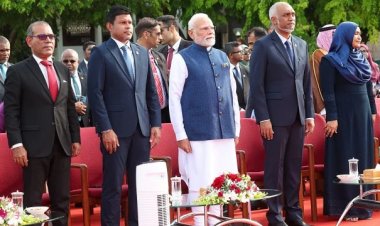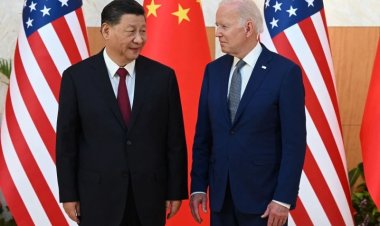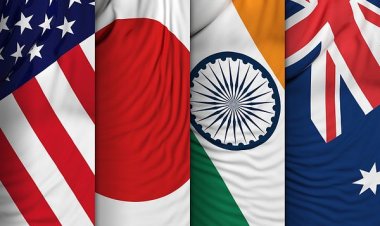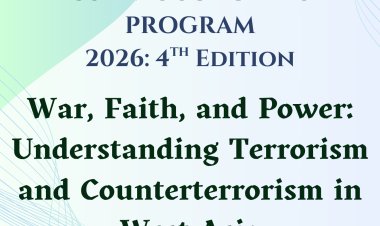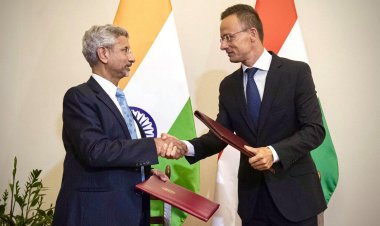Terrorism in Japan and Cooperation with India

Analysis
By Col Shashank Ranjan and Gitanjali Sinha Roy
Japan’s Ordeal with Terrorism
Japan's experience with terrorism is characterised by a complex historical trajectory that intertwines domestic incidents and international influences. While often regarded as one of the safest countries in the world, Japan has faced notable terrorist threats, including the 1995 sarin gas attack on the Tokyo subway by the Aum Shinrikyo cult, which resulted in 14 deaths and thousands of injuries. This attack is considered a pivotal moment in Japan's relationship with terrorism, prompting significant shifts in national security policies and public perception toward both domestic and transnational threats.[1]
Although the 1995 Tokyo subway sarin attack probably was the most widely reported terrorist event in Japan to date, the country has suffered numerous other large terrorism-related events in recent decades, including bombings of the headquarters of Mitsubishi Heavy Industries in Tokyo in 1974 (207 injured, 8 dead), the Hokkaido Prefectural Government office building in Sapporo in 1976 (80 injured, 2 dead), and the Yosakoi-Soran Festival in Sapporo in 2000 (10 injured, none dead). Japan also has experienced two other mass-casualty terrorist events involving chemical releases, including the 1994 Matsumoto sarin attack (600 injured, 7 dead) and the 1998 Wakayama arsenic incident (67 injured, 4 dead).[2]
Classification of Terrorism in Japan
The phenomenon of terrorism in Japan can be divided into two main categories: domestic and transnational terrorism. Domestic terrorism has historically been associated with radical political groups, such as the Japanese Red Army, which carried out high-profile attacks in the 1970s. In contrast, transnational terrorism has been influenced by global events, including the rise of Islamic extremism and the September 11 attacks, which have underscored Japan's vulnerability to international terrorist networks.
In the late 20th century, the rise of Islamic militancy influenced global patterns of terrorism, affecting Japan as well. Events such as the 1995 Tokyo subway attack and the 1993 World Trade Center bombing exemplified the broader trend of violence targeting civilians for political and ideological ends, which reflected a shift in how terrorism was perceived and experienced in Japan.[3]
In response to the evolving threat of terrorism, the Japanese government has implemented various anti-terrorism measures to enhance national security. The Anti-Terrorism Special Measures Law, enacted in the wake of the 9/11 attacks, authorises the Prime Minister and Cabinet Ministers to lend materials, excluding weapons and ammunition, to foreign forces or the United Nations when deemed necessary for the smooth implementation of their activities.[4]
Despite these measures, there are ongoing concerns regarding the effectiveness of Japan's data collection on domestic terrorist activities. Comprehensive data on terrorist attacks and plots within Japan is crucial for developing effective counterterrorism policies. The lack of publicly available data has historically hindered the government's ability to respond proactively to threats. A coordinated approach to data collection across relevant government agencies is recommended to improve transparency and effectiveness in countering domestic extremism.[5]
Japan recognises that combating terrorism requires cooperation beyond its borders. The government has engaged in dialogues and partnerships with international allies to strengthen its counter-terrorism strategies. This includes sharing intelligence and best practices to build a more comprehensive response to terrorism. Additionally, Japan is committed to the principles of the United Nations and actively participates in international coalitions aimed at promoting global security and combating terrorism.[6]
The rising trend of domestic extremism poses a significant challenge for Japan. Factors such as political polarisation and social unrest can lead to radicalisation and violence within urban areas. The government is increasingly focusing on understanding the nature and scope of domestic extremism to develop long-term strategies that prioritise both prevention and response to terrorist activities. This methodical, research-driven approach aims to enhance national security while protecting the rights and safety of all citizens.[7]
The media plays a crucial role in shaping public perceptions of terrorism. Various platforms—ranging from television to social media—can frame narratives that elicit empathy or hostility towards those involved in terrorist activities. For instance, certain narratives may humanise individuals who engage in terrorism, leading to a complex understanding of their motivations. This can impact how society responds to the issue, either fostering understanding and dialogue or contributing to division and fear. Japanese media, through storytelling, has the potential to either reinforce stereotypes or challenge them by providing a more nuanced depiction of the motivations behind terrorism.[8]
Community relations in Japan, particularly in the context of terrorism, are influenced by a complex interplay of societal attitudes, immigration, and national security concerns. Following terrorist incidents, there tends to be a rise in negative sentiments towards migrants, which can lead to increased hostility among the native population. This response is often characterised by heightened fears regarding cultural identity, labor competition, and the perceived burden on domestic welfare systems.[9]
Counter-Terrorism measures between India and Japan
India-Japan cooperation on counter-terrorism is a significant aspect of the bilateral relationship between these two nations, characterised by shared strategic interests in addressing evolving security threats in the Indo-Pacific region. Rooted in a long-standing historical partnership that dates back to cultural exchanges in the 7th century, this collaboration has been shaped by geopolitical developments, including the rise of terrorism and regional security challenges posed by assertive neighbouring powers, particularly China.[10] The establishment of frameworks like the Joint Declaration on Security Cooperation in 2008 marked a pivotal moment, initiating structured dialogues and joint efforts to combat terrorism, emphasising intelligence sharing, capacity building, and joint military exercises.[11]
In the last two years, India and Japan have been actively working towards the Counter Terrorism Working Group, which is an initiative of the QUAD. In the first QUAD Counter Terrorism Working Group in 2023 discussed the threats and aimed to work on mitigation acts covering aspects of information sharing, consequence management and strategic messaging and these efforts have been made in order to counter the use of unmanned aerial systems and nuclear devices, prevent chemical, biological and radiological attacks and warfare and curb the misuse of internet for terrorist activities and QUAD countries have been looking for opportunities to engage with non-QUAD countries.[12] Another development took place at the Second QUAD Counter Terrorism Working Group Meeting discussed the tabletop exercise conducted by the QUAD countries and confirmed the establishment of an information sharing network.[13] In the recent QUAD Foreign Ministers’ Meeting held on 1st July 2025, the Pahalgam terrorist attack was condemned, but the QUAD members didn’t mention Pakistan, which raises skepticism on the matter of understanding India’s position on terror, by the QUAD partners.[14]
There have been key initiatives taken by India and Japan, such as the Joint Working Group on Counter-Terrorism, which has been instrumental in facilitating bilateral consultations aimed at enhancing operational cooperation.[15] Both nations recognise the importance of multilateral engagement to combat terrorism effectively, working together in forums like the Global Counter-Terrorism Forum and the Financial Action Task Force (FATF) to address issues such as the financing of terrorism and the impact of emerging technologies on security threats.[16] This cooperation is further complemented by joint naval exercises and maritime security initiatives, reflecting a holistic approach to ensuring regional stability and security in international waters.[17]
Strengths and Challenges
There has been a recent understanding between India and Japan on cooperation vis-a-vis issues concerning terrorism. In a defining moment for Asian security dynamics, India and Japan have taken a resolute stance against terrorism and expanded their strategic defence partnership, marking a new chapter in bilateral ties. During a high-profile meeting on May 5, 2025, in New Delhi, Indian Defence Minister Rajnath Singh and Japan’s Minister of Defence General Nakatani jointly condemned terrorism in all forms and called for intensified international cooperation to counter the growing threat of state-sponsored and cross-border militancy.[18]
Despite the strengths of this partnership, challenges persist, including divergent threat perceptions, varying strategic interests, and public opinion dynamics that may complicate collaborative efforts. The historical context of India's communal conflicts and Japan's pacifist stance influences their respective approaches to counter-terrorism, potentially hindering a unified strategy. Furthermore, economic constraints and external influences from other regional players add layers of complexity to their cooperation. Nonetheless, recent developments underscore a shared commitment to addressing these challenges and reinforcing strategic partnership, as both nations aim to enhance their collective capabilities against terrorism and foster a secure environment in the Indo-Pacific region.
Way forward
Japan has supported India in its endeavours of counter-terrorism, and it is important to look at the future policy formulations:
- India and Japan can work towards creating a counter-terrorism playbook which would have all the case studies and tactical mechanisms used globally and can be shared among like-minded countries. India’s diverse experience vis-à-vis terrorism could play a major role in enriching the database of the shared playbook.
- Jointly work on deradicalisation methods and create an online platform for monitoring and neutralising efforts. It is brought that the aspects related to radicalisation in Japan and India vary, and a structured model should be worked upon jointly by both nations to come out with a template that is agnostic in religious terms.
- Create a joint grouping of countries who would be interested in tackling piracy and maritime terrorism in the Indian Ocean and link it to the Indian Ocean Rim Association.
- Joint defence exercises in the realm of defence diplomacy between the militaries of both countries shall add substance towards effective cooperation in combating terrorism.
Disclaimer: This paper is the author's individual scholastic contribution and does not necessarily reflect the organization's viewpoint.
[1] Holly Fletcher, 'Aum Shinrikyo : a profile of the Japanese religious cult that carried out the 1995 subway sarin attack, CFR, June 19, 2012 ; URL: https://www.cfr.org/backgrounder/aum-shinrikyo
[2] Yasufumi Asai and Jeffrey L. Arnold, ‘Terrorism in Japan’, Cambridge University Press, 28 June 2012.
[3] Rin Ushiyama, ‘Aum Shinrikyo: the religious terrorism in Japanese collective memory’, British Academy Scholarship Online, December 2022.
[4] Please refer to https://japan.kantei.go.jp/policy/2001/anti-terrorism/1029terohougaiyou_e.html.
[5] CSIS Brief, ‘Pushed to Extremes: Domestic Terrorism amid Polarisation and Protest, 17 May 2022.
[6] Please refer to https://georgewbush-whitehouse.archives.gov/nsc/nssall.html.
[7] Ibid, CSIS report.
[8] Millie Zhang, ‘The Power of Positive Visual Narratives on Public Perceptions of Terrorism’, Institute for Politics and Strategy, Carnegie Mellon University, Autumn 2022.
[9] Marc Helbling and Daniel Meierrieks, ‘Terrorism and Migration: An Overview’, British Journal of Political Science, 17 December 2020.
[10] Please refer to https://www.azukiibistro.com/post/bridging-cultures-exploring-the-similarities-between-india-and-japan and https://finsindia.org/discovering-the-vibrant-connections-between-northeast-india-and-japan.html.
[11] Japan-India cooperation in the realm of defence and security Interview with Dr. Monika Chansoria, January 2024 ; https://www.frstrategie.org/sites/default/files/documents/programmes/Programme-japon/Publications/2024/202402-prog-japon.pdf.
[12] Ministry of Foreign Affairs of Japan. “The First Japan-Australia-India-U.S. (Quad) Counterterrorism Working Group Meeting”, 6 December 2023. URL: https://www.mofa.go.jp/fp/is_sc/pagewe_000001_00015.html.
[13] Ministry of Foreign Affairs of Japan, “The Second Australia-India-Japan-United States Quad Counterterrorism Working Group Meeting”, 22 November 2024. URL: https://www.mofa.go.jp/press/release/pressite_000001_00749.html
[14] Please hear https://www.youtube.com/watch?v=VmDRGMxevTE&t=68s
[15] KV Kesavan, Changing dimensions of partnership in post-cold war period’, ORF, May 2010.
[16] Walter Ladwig, ‘The Indo-Pacific in Indian Foreign Policy’, RUSI, 30 April 2024 and Keerthiraj, and Takashi Sekiyama, ‘The Rise of China and Evolving Defense Cooperation between India and Japan’ Social Sciences 12, no. 6: 333, 2023; URL:https://doi.org/10.3390/socsci12060333.
[17] Please see https://www.mea.gov.in/bilateraldocuments.htm?dtl/28946/IndiaJapan+Joint+Statement+during+visit+of+Prime+Minister+of+Japan+to+India+September+14+2017).
[18] Please refer to https://theasialive.com/india-and-japan-deepen-defence-ties-call-for-united-front-against-terrorism/2025/05/07/

